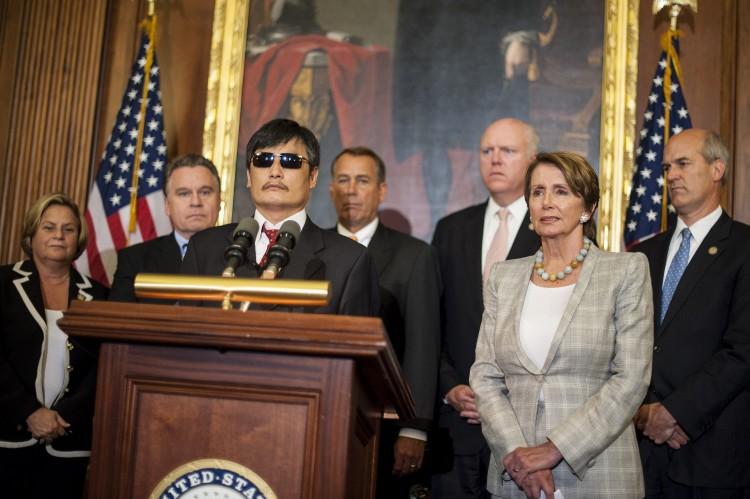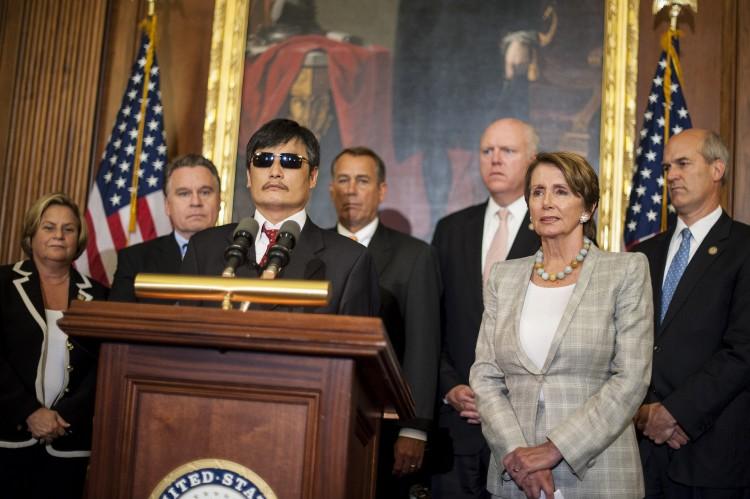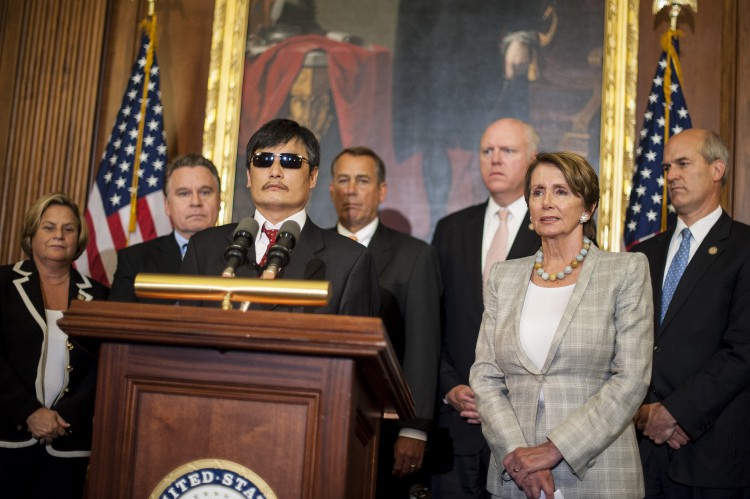In recognition of Human Rights Day on Dec. 10, Chinese blind, legal activist Chen Guangcheng videotaped a message in advance, with the New York night skyline in the background.
The tape was released Dec. 3 by ChinaAid, a Christian human rights organization that promotes religious freedom and the rule of law in China.
In the 10-minute video, Chen says the Chinese Communist Party is corrupt and lawless, calling upon newly installed General Secretary of the CCP Xi Jinping, to change the course of China toward the rule of law and human rights.
“Dear Mr. Xi Jinping, the whole nation is watching you. Whether you will follow the call of heaven and the people to carry out reform, or kidnap the government and maintain the power of the Communist Party, it is a matter of whether China will transition in a peaceful or violent way,” he said.
Chen urges Xi not to support the practice of treating Chinese citizens who advocate that officials should obey the law as state enemies. “Do not send the signal to [Communist] Party officials that they can continue acting without any restraint,” he said.
He listed many well-known activists, dissidents, intellectuals, and rights attorneys who have been harassed, detained, and in some cases beaten and imprisoned, including Liu Xia, Hu Jia, Wang Lihong, Jiang Tianyong, Xu Zhiyong, Zheng Enchong, Feng Zhenghu, Liu Ping, and Sun Wenguang.
“In a society without the rule of law, the citizens have no sense of security,” he said in the video, citing several well-known cases where dissidents and others were “disappeared.”
[video]http://www.youtube.com/watch?v=o2jm63P5qzg[/video]






